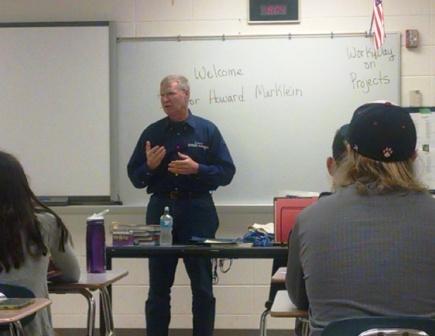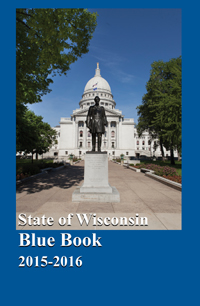|
Phosphorus:
Regulating Ourselves into the Poorhouse
In 2008, the federal government initiated the Gulf Hypoxia Action Plan
(Action Plan) to improve the conditions of the Mississippi River Basin and
the Northern Gulf of Mexico by addressing excess nitrogen and phosphorus
loads. There are 30 states, including Wisconsin, that were approached with
this plan because of our relationship with the Mississippi River.
In order to broadly manage the amount of phosphorus and nitrogen reaching the
Gulf, the federal Environmental Protection Agency (EPA) initiated guidelines
and recommendations to states including encouragement to adopt numeric
criteria for maximum phosphorus and nitrogen levels.
In 2010, the Wisconsin Natural Resources Board, the governing board of the
Department Natural Resources (DNR), voluntarily signed up to participate in
the Action Plan and set arbitrary numeric standards for phosphorus limits in
our state’s waterways. The board did not sign up to monitor nitrogen. The DNR
Board set the phosphorus discharge standard at .075 parts per million (ppm)
or mg/liter. This threshold was not based on any science or cost/benefit
analysis. The standard is the lowest in the country.
While the intent of this action was pragmatic, the real-world application of
arbitrary numeric limitations has placed significant strain on communities
throughout the state, including many in the 17th Senate District. The point sources
of phosphorus are primarily wastewater treatment facilities. These are the
only source that can be easily regulated by government. As such, a very large
problem is on the shoulders of a small part of the cause.
As a result of the wide presence of phosphorus, this nutrient enters our
waterways from natural, nonpoint and point sources. Natural sources include
lake-bottom sediment and other natural decomposition. Nonpoint sources
include general run-off, farm fields, feedlots, streets and parking lots.
Point sources include municipal and industrial wastewater treatment plants
that release liquid effluent to lakes and rivers or spread sludge on fields.
In analyzing the three sources of phosphorus, it is clear to see that the
only sources that are easily monitored, measured and regulated are point
sources. This is where phosphorus regulation becomes a burden for many
residents of the 17th Senate District and throughout the state.
The point sources in our communities are our municipal wastewater treatment
facilities. These facilities are funded by ratepayers.
Municipal wastewater facilities are issued five-year permits by the DNR.
Since 2011, new permits include new phosphorus requirements and a timeline to
reach specific levels of phosphorus in order for our state to comply with the
federal Clean Water Act, which we volunteered to do in 2010.
As the first round of permits comes to a close, many of our municipalities
are facing significant challenges to meet their requirements. The Village of
Plain and the Village of Benton are at the point where they are adding a
chemical - ferric chloride – to meet their goals. Plain is spending $20,000
per year on the chemical fix while the Village of Benton is spending $100,000
per year!
The Village of Plain has an interim limit of 3.6 ppm until 2020 and then they
will need to meet the .075 ppm standard. According to Nick Ruhland, the
Village’s Director of Public Works, the village would have to significantly
upgrade and renovate their wastewater treatment plant in order to accomplish
this standard. The cost for this, according to Ruhland, would be astronomical
and the burden on ratepayers would be unreasonable. Plain is a village of
only 782 people.
Sewer rates in Plain have already increased 10% per year since they signed
their last permit in 2012. The minimum service charge for Village customers
is currently $35.75 for up to 5000 gallons per quarter and $143.00 for
non-Village customers per quarter. Adding a major renovation to the plant
would multiply these rates significantly.
The Village of Benton is facing similar issues. Ryan Carver, the Benton
Director of Public Works, said that user rates are likely to double in order
for the village to comply with phosphorus standards on their current permit.
The average household in Benton currently pays approximately $40.04 per month
for sewer fees.
The cheapest option for Benton to meet their standard is the chemical
additive method of water treatment, at the 20 year cost of $1.97 million.
Annually, the Village will spend $98,688 to remove only 800 lbs of phosphorus
per year. The chemical option will raise the average fee for ratepayers to at
least $75.05 per month.
Looking ahead, in order to reach the .075 ppm standard, the Village estimates
that they will also have to invest $950,000 to upgrade their wastewater
treatment facility in order to apply the chemical fix. Carver, and village
leaders, would rather not raise fees and add a chemical to their water in
order to meet standards that they feel are unreasonable, and frankly, not
their fault. The village feels that there are a lot of other contributing
factors to the phosphorus they are trying to mitigate.
The Village of Benton is the first point source on the Galena/Fever River.
There are 72 miles of watershed above the point source where the village
discharges their water. The Village measures their discharge at less than 800
lbs of phosphorus annually. The DNR estimates that there are 116,000 lbs of
phosphorus in the river.
The expense in Benton is shared by the 973 residents who live there. This
unreasonable burden is nearly impossible for their small village to bear. But
they are not alone.
The 17th Senate District includes 94 industrial and municipal wastewater
discharges. According to the DNR, 85 of these facilities have potentially
restrictive phosphorus limits that may warrant a facility upgrade; 9
facilities do not have restrictive phosphorus limitations or are already
complying with their limits.
As much as we would like to, we cannot go back to 2010 and un-volunteer for
these phosphorus standards. Non-compliance would impact significant federal
dollars to our state and de-delegate Wisconsin so that the EPA would once
again enforce regulations within our state. We don’t want to do that.
In response to this terrible burden, the Wisconsin legislature recently
passed legislation that enabled the DNR to seek approval from the EPA to
offer multi-discharger and individual variances to the numeric standards for
individual municipalities. The state is currently waiting to see if the EPA
will grant this request.
Current water treatment technology to achieve the very low, arbitrary
standards we voluntarily set in 2010 is very expensive and unproven. By
allowing our municipalities time to meet the standards, the EPA will enable
Wisconsin to take advantage of new technology, study untested techniques and
seek lower-cost alternatives.
The variances would also allow a permittee to undertake some activity to
reduce phosphorus contributions from other sources in their watershed. They
may be able to do this through water trading or adaptive management
practices.
Water quality trading provides point sources with the flexibility to purchase
pollutant reductions from other sources in their watershed to offset their
point source load so that they will comply with their own permit
requirements.
Adaptive management practices allows point and nonpoint sources (e.g.
agricultural producers, storm water utilities, developers) to work together
to improve water quality in those waters not meeting phosphorus standards.
This option is time and people intensive and requires cooperation among a
wide variety of entities.
While some villages, like Plain, would prefer to do water trading in order to
meet their standards, other villages, like Benton, would prefer to pursue
adaptive management. Either way, municipalities throughout the 17th Senate
District, would greatly benefit from the ability to seek a variance on the
stringent standards our state volunteered to adopt several years ago.
Like most municipalities in Wisconsin, both Benton and Plain recognize their
role in protecting water quality, but they also know that the responsibility
is much broader than the small shoulders of their village wastewater
treatment plant. It is my hope that the EPA will approve the DNR’s request so
that our state can offer municipalities the time, technology and flexibility
to meet standards while working with their nonpoint neighbors to improve
phosphorus levels overall.
|
|
Wisconsin
Makes List of "Top 15" Best States for Business
Chief Executive magazine recently announced the results of their annual
"Best State for Business" CEO survey. Wisconsin is ranked
11th this year, improving 30 places in this ranking since 2010!
According to the survey results, CEOs also ranked Wisconsin 3rd overall in
the Midwest.
Chief Executive magazine's "Best and Worst States for Business"
survey gauges the sentiment of CEOs on a variety of measures they view as
critical, including the tax and regulatory regime, quality of the workforce
and quality of the living environment.
The survey indicated Wisconsin outranks its neighboring states, beating
Iowa (17th), Minnesota (34th), Michigan (40th) and Illinois (48th).
Wisconsin's recent rankings are as
follows:
2016 - 11th
2015 - 12th
2014 - 14th
2013 - 17th
2012 - 20th
2011 - 24th
2010 - 41st
The
full Chief Executive magazine report is available here.
|
|
In The 17th Senate District

Ms.
Darci Even invited Sen. Howard Marklein to speak to her Accounting I class at
Reedsburg Area High School on Wednesday, May 11, 2016. The Senator shared his
background and stories about his career as an accountant.

Last month, Sen. Marklein had a successful hunt on opening day of turkey
season, April 13, 2016.
29
pounds. 1.25 inch spurs.
.jpg)
Sen. Marklein visited the
Reedsburg Head Start classes to read Cows To The Rescue as a part of
the Home and Community Education (HCE) Bookworm Program.
HCE is celebrating the reading of
their 750,000th book this week!
Thanks to all of the students and teachers who welcomed me to be a part of
their final day of classes! Have a wonderful summer!
|
|
Useful
Information
Revenue Collections: April 2016 (Fiscal Year
2015-16)
The Wisconsin Department of
Revenue (DOR) recently released a report detailing general purpose revenue
(GPR) taxes collected by the agency for the month of April. This data
is for the first 10 months of the fiscal year which ends on June 30, 2016.
Our current year revenue collections are on track when compared to our
budget.
Department
of Revenue Collections
April
2016 (FY 2016)
($ thousands)
|
Revenue Source
|
FY 2015
|
FY 2016
|
% Change
|
|
Individual Income
|
5,768,431
|
6,141,357
|
6.5%
|
|
General Sales & Use
|
3,604,848
|
3,711,212
|
3.0%
|
|
Corporate
|
755,610
|
755,230
|
-0.1%
|
|
Excise Taxes
|
518,996
|
525,131
|
1.2%
|
|
Other
|
242,508
|
252,210
|
4.0%
|
|
Total GPR
|
10,890,393
|
11,385,140
|
4.5%
|
*Source: Department
of Revenue
|





.jpg)


